Imperialism is a spectacle of violence and domination, enacted globally to maintain the dominance of Western capitalism over the world. As David Harvey writes:
“imperialism is a necessary condition of capitalism, as capital must expand beyond its own borders to find new markets, resources, and labour.
Harvey, 2005
This drive for expansion has led to the creation of a global capitalist system, where powerful nations dominate weaker ones to extract wealth and maintain their dominance. The United States, the European Union (EU), and NATO have long been the leading forces behind this imperialist project, using military interventions, economic coercion, and political influence to maintain their global dominaton.
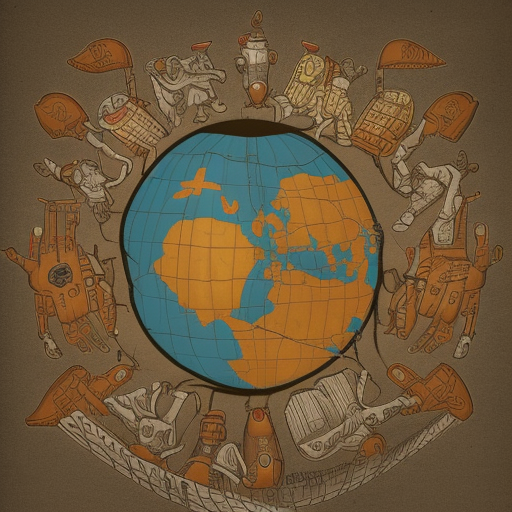
Today, the United States, NATO, and the EU are no longer the only great powers on the global stage. They are joined by a resurgent nationalist Russia and a restless China. Under Putin, Russia has pursued an assertive foreign policy, seeking to expand its sphere of influence and challenge Western dominance. Putin has portrayed himself as a defender of Russian national interests and has sought to reassert Russia’s status as a great power. This has led to tensions with the US and Europe over issues such as Ukraine, Syria, energy supply, and election interference.
Similarly, China under Xi Jinping has become increasingly assertive in its foreign policy, as evidenced by the Belt and Road Initiative (a spectacle?), its territorial claims in the South China Sea, and its growing military power. China’s economic rise has given it significant influence in the global economy, and it is now seen as a major challenger to US and European economic dominance. China’s assertiveness has led to tensions with the US and other countries over issues such as trade, human rights, and cybersecurity.
Overall, the US and EU now face challenges not just from each other, but also from Russia and China, which are pursuing their own national interests and challenging the existing global order. This has led to a more complex and volatile international environment, where great power competition and conflict are increasingly likely.
US Imperialism
For almost eighty years, the United States has presented itself as a symbol of democracy, freedom and human rights. However, this surface-level spectacle only serves to conceal a much darker reality of American imperialism, driven by the insatiable thirst for economic interests and geopolitical power. As Hal Draper argues:
“American imperialism is the product of the same capitalist drive to expand and accumulate profits that fuels all imperialist powers
Draper, 1966
This drive for expansion has led to a history of military interventions, economic coercion, and political influence in pursuit of American interests around the world. As Peter McGowan notes:
“American imperialism operates on a global scale, with the United States exerting its influence through economic, political, and military means.
McGowan, 2014
This influence is felt in all corners of the world, from the Middle East to Latin America, and has been a major force in shaping the current global order. The impact of American imperialism can be seen in the widespread poverty and inequality that persists in many parts of the world, as well as the ongoing conflicts and military interventions that have destabilized entire regions. Since the end of World War II, the United States has used its military and economic might to shape global affairs as the preeminent superpower in the world. Despite its professed commitment to democracy and human rights, the United States has a history of supporting authoritarian regimes in the name of combating communism and terrorism.
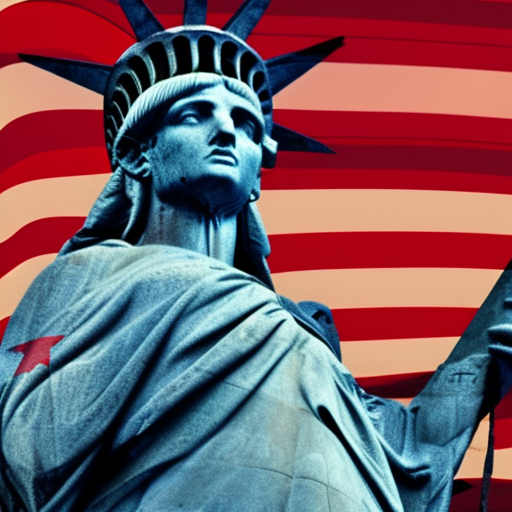
The United States’ projection of imperialist power has been a ubiquitous force on the world stage since its rise to power. The nation has intervened in foreign lands regularly, seeking to expand its economic influence and assert its hegemony over other nations. These interventions have had devastating consequences for the people of the nations impacted by American imperialism. In Iran, for example, the United States’ involvement led to the rise of the Shah’s repressive regime, which was marked by brutal repression of dissent and violations of human rights.
In the same way, the US backed a military coup against the democratically elected government of Salvador Allende in Chile. This made it possible for Augusto Pinochet’s brutal regime to take over. Pinochet’s regime was infamous for its human rights abuses and repression of political dissent, which were carried out with the active support of the United States. The United States’ backing of Pinochet and other right-wing dictatorships in Latin America allowed for the subjugation of progressive movements in the region and the consolidation of American economic and political interests.
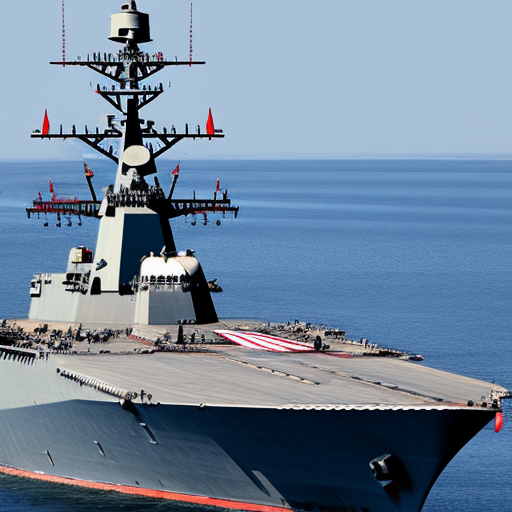
In Pakistan, the United States’ support for Pervez Musharraf’s military dictatorship was also driven by its desire to assert geopolitical power in the region. Despite Musharraf’s regime being rife with corruption and human rights abuses, the United States continued to back him as a key ally in the War on Terror. This support further entrenched Musharraf’s authoritarian rule and contributed to the erosion of democracy in Pakistan.
The United States’ claims of being a champion of democracy and human rights are nothing more than a superficial façade, designed to obfuscate the reality of its imperialist ambitions and the oppression it imposes on other nations. It is imperative that we recognise this reality and work together to dismantle the structures of oppression that the United States has sought to impose upon the world.
The Imperialist other
Imperialism takes many forms beyond military interventions and economic exploitation. Western capitalism perpetuates the exploitation of the Global South, where resources and labour are still extracted at a fraction of their true value. David Harvey again:
“the capitalist system is dependent on the exploitation of the global south, where resources and labour are cheap and easily exploitable
Harvey, 2005
This exploitation is sustained by the global economic system, which perpetuates conditions of poverty and inequality that drive people from their homes in search of a better life.
Britain has historically played a subservient role to the US in the maintenance of Western capitalist dominance. As Tariq Ali writes:
“Britain has functioned as the “junior partner” of US imperialism since the end of World War II, supporting American interventions and acting as a loyal ally in the maintenance of global capitalism.
Ali, 2003
This subservience is evident in Britain’s participation in military interventions in Iraq and Afghanistan, as well as its ongoing support for US-led NATO interventions around the world.

In addition to the imperialist tendencies of Western powers, Russia under Putin has also displayed a clear drive for expansion and dominance towards Ukraine. In 2014, Russia annexed Crimea from Ukraine, justifying its actions by claiming to protect ethnic Russians in the region. Putin then provided support to separatist rebels in eastern Ukraine, leading to a conflict that resulted in over 13,000 deaths. With no clear victory for Putin, 2022 witnessed a brutal invasion of Ukraine, under a false pretence to ‘de-nazify’ the country. Gilbert Achcar writing in 2016 described:
“Russia’s intervention in Ukraine represents a clear example of imperialist aggression, aimed at maintaining its sphere of influence in the region.
Achcar, 2016
The conflict has had devastating effects on the Ukrainian population, leading to mass displacement, economic disruption, infrastructure destruction and ongoing violence (which includes war crimes).
Some people have said that Putin’s actions in Ukraine are a response to NATO’s growth, but this is a false argument. As William I Robinson demonstrates here:
“the dominant powers use the fear of external threats to justify their own imperialist actions, but in reality, these actions are driven by internal pressures to maintain dominance and expand their influence.
Robinson, 2014
Putin’s actions towards Ukraine can be understood as a continuation of Russia’s imperialist politics towards its neighbours, rather than a response to NATO expansion. In fact, many of the countries that have joined NATO in recent years, such as Estonia and Latvia, have historical ties to Russia and have been subject to Russian influence in the past. The conflict in Ukraine today is a result of Putin’s desire for imperial domination.
Harvey, a prominent Marxist geographer, has also argued that China’s imperial ambition is rooted in its history and geography. In his book “The New Imperialism,” he argues that China’s historical legacy as a dominant power in East Asia has shaped its current foreign policy goals. Additionally, writing that China’s geography, with its vast landmass and extensive coastline, gives it both the resources and the strategic position to project its power across the globe. China’s Belt and Road Initiative (BRI) is a key component of its imperial project, as it seeks to create a vast network of infrastructure, trade and investment across Asia, Europe, and Africa. While the BRI offers significant economic benefits for participating countries, it has also drawn criticism for being a “debt trap” and a tool for China’s geopolitical influence. Harvey argues that China’s push for economic dominance and its efforts to establish military bases in other countries are clear indications of its imperial ambitions. However, he also acknowledges that China’s imperial project is not without challenges, including domestic unrest, international opposition and potential conflicts with other great powers.
Through the Spectacle
These dominant powers use spectacle to create a false sense of unity and shared identity among different groups within the dominant class while simultaneously erasing the differences and conflicts between them. This allows the dominant class to present a united front in its pursuit of imperialist goals while masking the underlying tensions and contradictions that exist within it (Debord, 1967). Even when there are problems within, the dominant class can give the impression of stability and cohesion to the public by presenting this unified image.
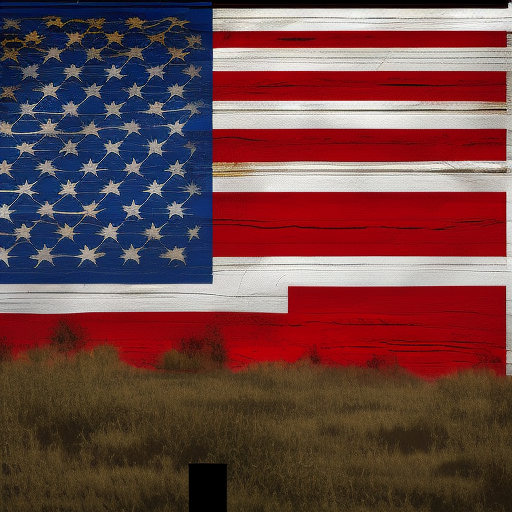
One example of the use of spectacle in imperialist pursuits is the way in which the United States government presents its military interventions as necessary for the defence of democracy and human rights. The US government uses images of the American flag, patriotic symbols, and heroic narratives to create a sense of unity among different groups within American society while erasing the conflicts and contradictions that exist within it. This spectacle serves to justify the use of military force to protect American interests and expand its global influence while masking the underlying tensions and contradictions within American society.
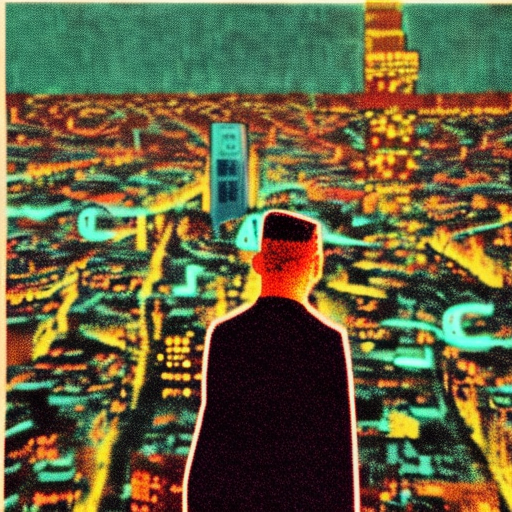
Another example of the use of spectacle is the way in which multinational corporations present themselves as socially responsible and environmentally conscious while simultaneously engaging in exploitative practises in the Global South. These corporations use images of happy workers, smiling children, and pristine environments to create a sense of shared identity and community with their consumers. This spectacle serves to mask the tensions and contradictions between the interests of these corporations and the communities they exploit for profit.
In both examples, the use of spectacle serves to create a false sense of unity and shared identity among different groups within the dominant class, erasing the underlying tensions and contradictions that exist within it. The spectacle serves to justify imperialist pursuits and exploitation while ignoring the voices and experiences of those who are most directly impacted by these practises.
Climate Change, Migrant Crisis and the Global Police State
The migrant crisis in Europe and the issue of climate change are deeply connected to imperialism, as the policies of Western powers have created the conditions for mass migration through their interventions in the Global South and prioritisation of economic growth. The so-called forever wars, under the pretext of freeing the world from global terror, have uprooted many thousands, leading to the displacement of millions of people who are forced to flee their homes in search of safety and security. As Gilbert Achcar (2016) argues, this refugee crisis is a result of the actions of powerful states, who have destroyed the societies and economies of the Global South through their imperialist policies, which has also contributed to the devastating effects of climate change. Imperialist powers have exploited natural resources for profit, leading to environmental degradation and climate change, which has further exacerbated the displacement of millions of people around the world. This interconnectedness highlights the urgent need for collective action to address these complex problems and to prevent the perpetuation of inequality, exploitation, and environmental degradation.
The global police state is a key component of imperialist power in the contemporary world. As William I Robinson argues;
“the global police state represents the new repressive apparatus of global capitalism”
Robinson, 2014
This apparatus is designed to maintain the dominance of Western capitalist powers over the world by suppressing dissent and enforcing conformity to the global economic order. Migrants often find themselves caught up in this apparatus, subject to detention and deportation as they attempt to flee the conditions created by imperialist policies.
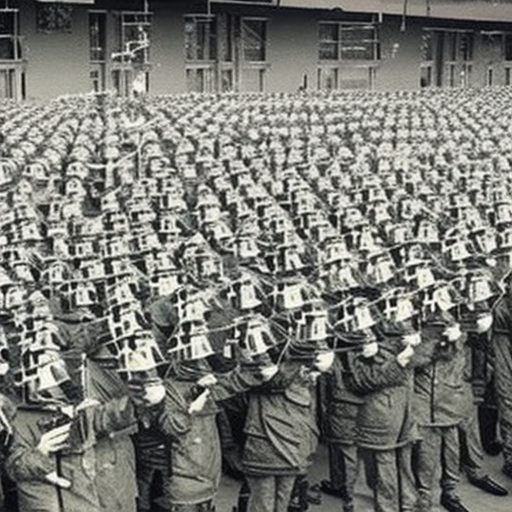
The migrant crisis is perpetuated by the global economic system, which creates conditions of poverty and inequality that drive people from their homes. Robinson again:
“the global capitalist system is designed to benefit the wealthy at the expense of the poor, perpetuating conditions of poverty and inequality that drive people from their homes in search of a better life.
Robinson, 2014
This economic system is sustained by the exploitation of the Global South, where resources and labour are extracted at a fraction of their true value.
The ongoing migrant crisis has also highlighted the limitations of the United Nations in addressing global problems. As Steven Lukes argues:
“the UN has been unable to challenge the power of the world’s dominant nations, who continue to shape the global agenda according to their own interests.
Lukes, 2005
This weakness is a direct result of the power imbalances in the global system which prioritise the interests of the powerful over the needs of the vulnerable. The failure of the international community to adequately address the root causes of the crisis, such as economic exploitation and military intervention, further demonstrates the limitations of existing systems for addressing these complex problems.
Domination, Debord and Resistance
Imperialism, is a recurring theme in the history of humanity, and continues to exert its powerful influence in our contemporary world. It manifests in various forms, from economic exploitation and military interventions to geopolitical influence and territorial ambitions. The dominant powers of the West, including the United States, the EU, and NATO, have long perpetuated conditions of inequality, poverty, and violence through their military and economic might. They have maintained their global dominance through a systemic practice of imperialism, which has created deep-rooted structures of oppression and injustice.
Today, we witness the rise of new powers (or a return of the old powers), such as Russia and China, who are vying for their place in the global power structure. China’s increasing military build-up in the South China Sea is a clear indication of its desire for territorial expansion and geopolitical influence. The construction of military installations in disputed waters and the expansion of its naval capabilities are reminiscent of the tactics employed by Western powers in the past. This militarisation has raised tensions in the Pacific and has increased the risk of conflict.
The global economic system perpetuates inequality and exploitation, resulting in the displacement of millions of people in search of safety and security. However, the limitations of the United Nations and the rise of the global police state demonstrate the inadequacy of existing systems in addressing these issues. To confront these challenges, we must recognise that imperialism takes many forms and that it is our responsibility to work towards a more equitable world.
To dismantle the structures of imperialism and the power systems that sustain oppression, it is essential to challenge the dominant narratives that justify and perpetuate it. We must reject the illusions of consumer society and see the spectacle for what it is – a manufactured reality designed to distract and pacify us. Supporting grassroots movements that work towards justice and liberation is another crucial way to dismantle these structures. We must demand an end to military interventions, economic exploitation, and political domination, and work towards creating a world where all people are free to live in peace and dignity.
In conclusion, the struggle against imperialism is ongoing and requires collective action and solidarity. We must work together to break down the structures that perpetuate inequality, violence, and oppression, and build a world where all people can live with dignity and respect. As Guy Debord said:
“The spectacle is not a collection of images, but a social relation among people, mediated by images.
Debord 1967
It is only by seeing beyond the spectacle and recognising our shared humanity that we can create a world free from the chains of imperialism.
References
Achcar, G. (2016). The People Want: A Radical Exploration of the Arab Uprising. University of California Press.
Ali, T. (2003). Bush in Babylon: The Recolonisation of Iraq. Verso Books.
Davis, M. (2006). Planet of Slums. Verso Books.
Debord, G. (1967). The Society of the Spectacle. Black & Red.
Harvey, D. (2005). A Brief History of Neoliberalism. Oxford University Press.
Lukes, S. (2005). Power: A Radical View. Palgrave Macmillan.
Robinson, W. (2014). Global Capitalism and the Crisis of Humanity. Cambridge University Press.
Art Book Review Books Campism Capitalism China Climate Emergency Conservative Government Conservative Party COVID-19 Creeping Fascism Economics EcoSocialism Elections Europe Far-Right Fascism Film Film Review Fourth International France Gaza History Imperialism Iran Israel Italy Keir Starmer Labour Party Long Read Marxism Marxist Theory Migrants Palestine pandemic Police Protest Russia Solidarity Statement Trade Unionism Trans*Mission Ukraine United States of America War

